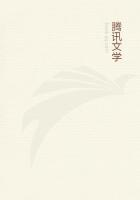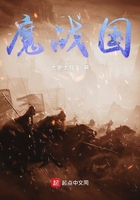WE were now steering by compass. Our course was nearly north-west. This we kept, as well as the formation of the country and the watercourses would permit. After striking the great Shoshone, or Snake River, which eventually becomes the Columbia, we had to follow its banks in a southerly direction. These are often supported by basaltic columns several hundred feet in height. Where that was the case, though close to water, we suffered most from want of it. And cold as were the nights - it was the middle of September - the sun was intensely hot. Every day, every mile, we were hoping for a change - not merely for access to the water, but that we might again pursue our westerly course. The scenery was sometimes very striking. The river hereabouts varies from one hundred to nearly three hundred yards in width; sometimes rushing through narrow gorges, sometimes descending in continuous rapids, sometimes spread out in smooth shallow reaches. It was for one of these that we were in search, for only at such points was the river passable.
It was night-time when we came to one of the great falls. We were able here to get at water; and having halted through the day, on account of the heat, kept on while our animals were refreshed. We had to ascend the banks again, and wind along the brink of the precipice. From this the view was magnificent. The moon shone brightly upon the dancing waves hundreds of feet below us, and upon the rapids which extended as far as we could see. The deep shade of the high cliffs contrasted in its impenetrable darkness with the brilliancy of the silvery foam. The vast plain which we overlooked, fading in the soft light, rose gradually into a low range of distant hills. The incessant roar of the rapids, and the desert stillness of all else around, though they lulled one's senses, yet awed one with a feeling of insignificance and impotence in the presence of such ruthless force, amid such serene and cold indifference. Unbidden, the consciousness was there, that for some of us the coming struggle with those mighty waters was fraught with life or death.
At last we came upon a broad stretch of the river which seemed to offer the possibilities we sought for. Rather late in the afternoon we decided to cross here, notwithstanding William's strong reluctance to make the venture. Part of his unwillingness was, I knew, due to apprehension, part to his love of fishing. Ever since we came down upon the Snake River we had seen quantities of salmon. He persisted in the belief that they were to be caught with the rod. The day before, all three of us had waded into the river, and flogged it patiently for a couple of hours, while heavy fish were tumbling about above and below us. We caught plenty of trout, but never pricked a salmon. Here the broad reach was alive with them, and William begged hard to stop for the afternoon and pursue the gentle sport. It was not to be.
The tactics were as usual. Samson led the way, holding the lariat to which the two spare horses were attached. In crossing streams the mules would always follow the horses.
They were accordingly let loose, and left to do so. William and I brought up the rear, driving before us any mule that lagged. My journal records the sequel:
'At about equal distances from each other and the main land were two small islands. The first of these we reached without trouble. The second was also gained; but the packs were wetted, the current being exceedingly rapid. The space remaining to be forded was at least two hundred yards; and the stream so strong that I was obliged to turn my mare's head up it to prevent her being carried off her legs. While thus resting, William with difficulty, - the water being over his knees, - sidled up to me. He wanted to know if I still meant to cross. For all answer, I laughed at him. In truth I had not the smallest misgiving. Strong as was the current, the smooth rocky bottom gave a good foothold to the animals; and, judging by the great width of the river, there was no reason to suppose that its shallowness would not continue.
'We paused for a few minutes to observe Samson, who was now within forty or fifty yards of the opposite bank; and, as I concluded, past all danger. Suddenly, to the astonishment of both of us, he and his horse and the led animals disappeared under water; the next instant they were struggling and swimming for the bank. Tied together as they were, there was a deal of snorting and plunging; and Samson (with his habitual ingenuity) had fastened the lariat either to himself or his saddle; so that he was several times dragged under before they all got to the bank in safety.
'These events were watched by William with intense anxiety.
With a pitiable look of terror he assured me he could not swim a yard; it was useless for him to try to cross; he would turn back, and find his way to Salt Lake City.
'"But," I remonstrated, "if you turn back, you will certainly starve; everything we possess is over there with the mules; your blanket, even your rifle, are with the packs. It is impossible to get the mules back again. Give little Cream her head, sit still in your saddle, and she'll carry you through that bit of deep water with ease."
'"I can live by fishing," he plaintively answered. He still held his long rod, and the incongruity of it added to the pathos of his despair. I reminded him of a bad river we had before crossed, and how his mule had swum it safely with him on her back. I promised to keep close to him, and help him if need were, though I was confident if he left everything to Cream there would be no danger. "Well, if he must, he must.
But, if anything happened to him, would I write and tell Mary? I knew her address; leastways, if I didn't, it was in his bag on the brown mule. And tell her I done my best."

